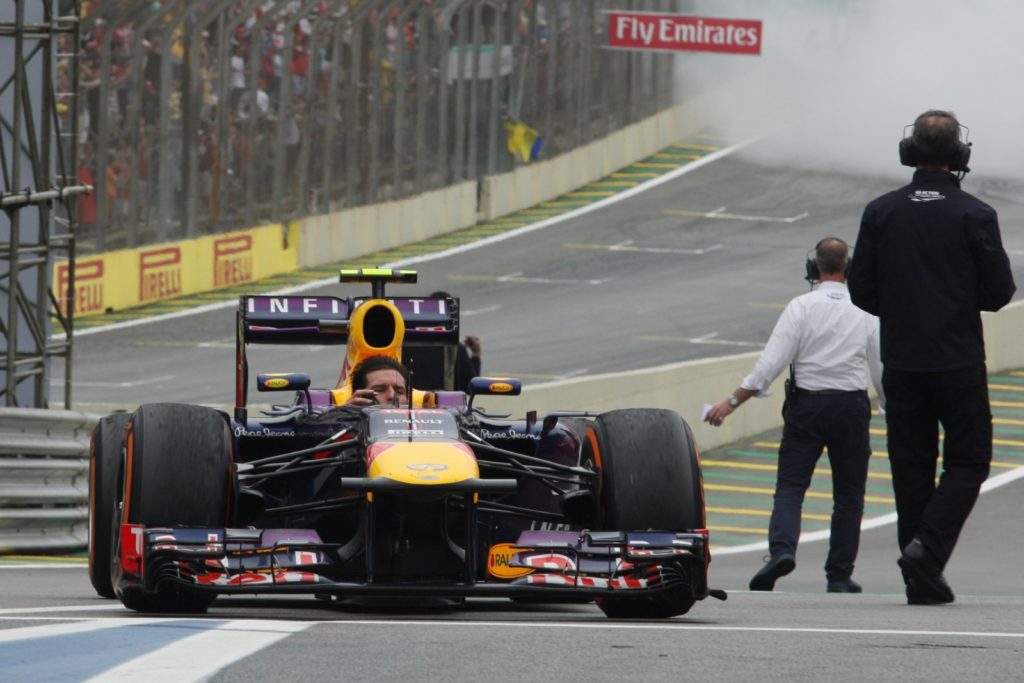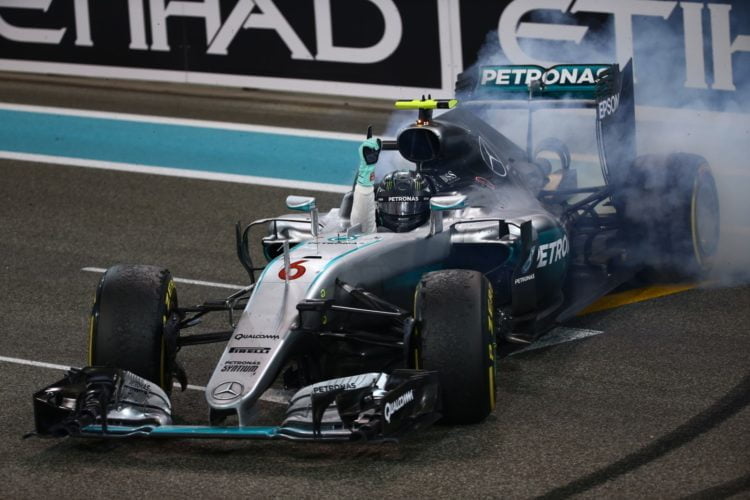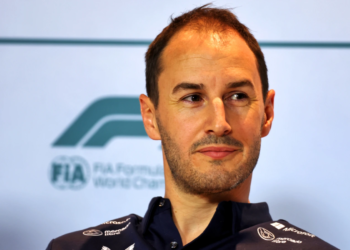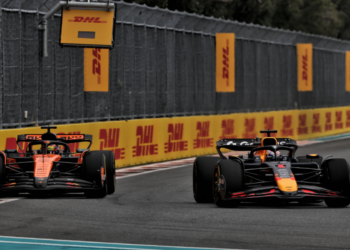Some drivers burst onto the scene with a stunning result but what about when it all comes to an end? Most Formula 1 drivers don’t get a choice in when they depart the sport. Or if they do they might have been quietly shuffled towards the exit door. But some managed to exit on a high – either through luck or judgement. Motorsport Week takes a look at five of the best last races.
NB: Drivers whose careers were cut short by either injury or a fatal accident have not been considered. Drivers who started only one event have also not been considered.
Michael Andretti (3rd, Italy 1993)
It isn’t often that a driver’s best result comes when they get out-qualified by a team-mate by over a second, finish a lapped down, and then immediately leave the team. But that’s what happened to Michael Andretti. The American’s Formula 1 venture with McLaren had promise but spiralled into a sequence of disappointments and setbacks, and by the Italian Grand Prix the parties had already agreed to split after the event, three rounds early. Andretti had scored just three points, compared to Ayrton Senna’s 53, prior to Monza and had retired on seven occasions. In a race of high attrition at Monza Andretti recovered from a spin to take third, which remains the last time an American featured on the F1 podium.
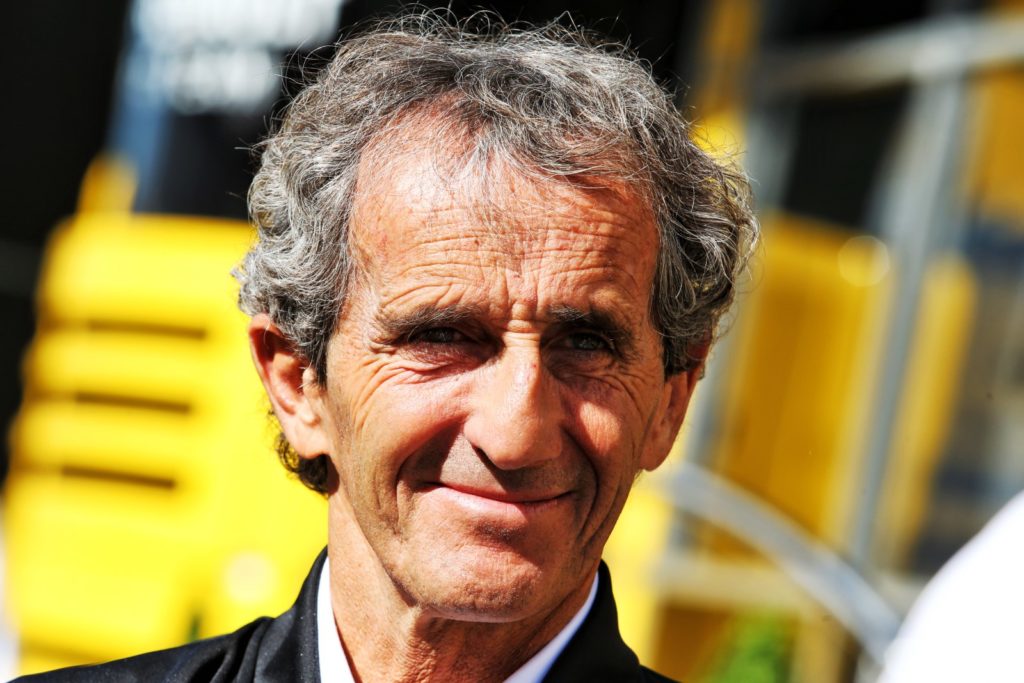
Alain Prost (2nd, Australia 1993)
Prost moved to Williams for 1993 and cantered to a fourth world title in the rapid FW15C, winning seven of the opening 10 grands prix. With Williams having signed Ayrton Senna for 1994, and with Prost lacking a veto, the 38-year-old brought down the curtain on his career. Senna got one up on his long-term rival by taking a pole-win double in Adelaide but front-row starter Prost capped his career with the runner-up position. The pair went on to embrace on a podium that also transpired to be Senna’s last before his untimely death the following year.
Gerhard Berger (4th, Europe 1997)
Berger’s Formula 1 career stretched for over a decade as he claimed victories for Benetton, McLaren and Ferrari, and 1997 proved to be his final year in the championship. Berger took a pole/fastest lap/win triple in Germany and a few rounds later opted to call time on his lengthy career. Berger’s final race came at the European Grand Prix at Jerez, most famous for the title-defining collision between Jacques Villeneuve and Michael Schumacher. Berger, who qualified eighth, remained in contention towards the leading group throughout and greeted the chequered flag in fourth, a mere 0.116s behind new champion Villeneuve, and within two seconds of first-time race winner Mika Hakkinen.
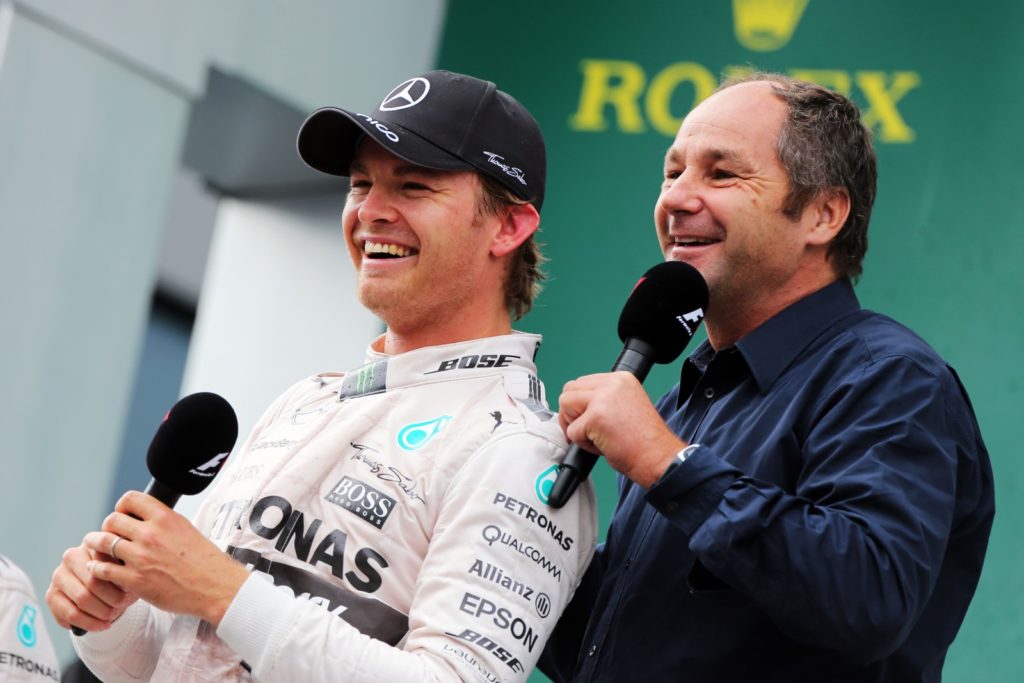
Mark Webber (2nd, Brazil 2013)
By 2013 Mark Webber had made up his mind – he was out of Formula 1 and Red Bull at the end of the campaign, off to start a new chapter with Porsche in the World Endurance Championship. Webber’s final season was not exceptionally stellar as he failed to win a race alongside the dominant Sebastian Vettel, who pocketed 13 victories. But at the Interlagos finale Webber rose from a subdued fourth on the grid to finish second, ensuring he bade farewell to a distinguished Formula 1 career from the podium, a feat that very few drivers have managed. He famously removed his helmet on the cooldown lap and returned to the pit lane au naturelle.
Nico Rosberg (2nd, Abu Dhabi 2016)
Only Rosberg knew that the 2016 Abu Dhabi Grand Prix would be his Formula 1 swansong – if he won the World Championship. In a tense season showdown at the Yas Marina Circuit Mercedes team-mate and sole title rival Lewis Hamilton dominated, while Rosberg held second, having crucially overtaken the off-set Max Verstappen into Turn 8. A deliberately slow Hamilton tried backing Rosberg into Sebastian Vettel and Verstappen during the closing laps but Rosberg held firm in second place to seal the crown. Rosberg had a contract with Mercedes until 2018 but, having won the title that he so craved, shocked the world when he made his retirement announcement five days after the race.
